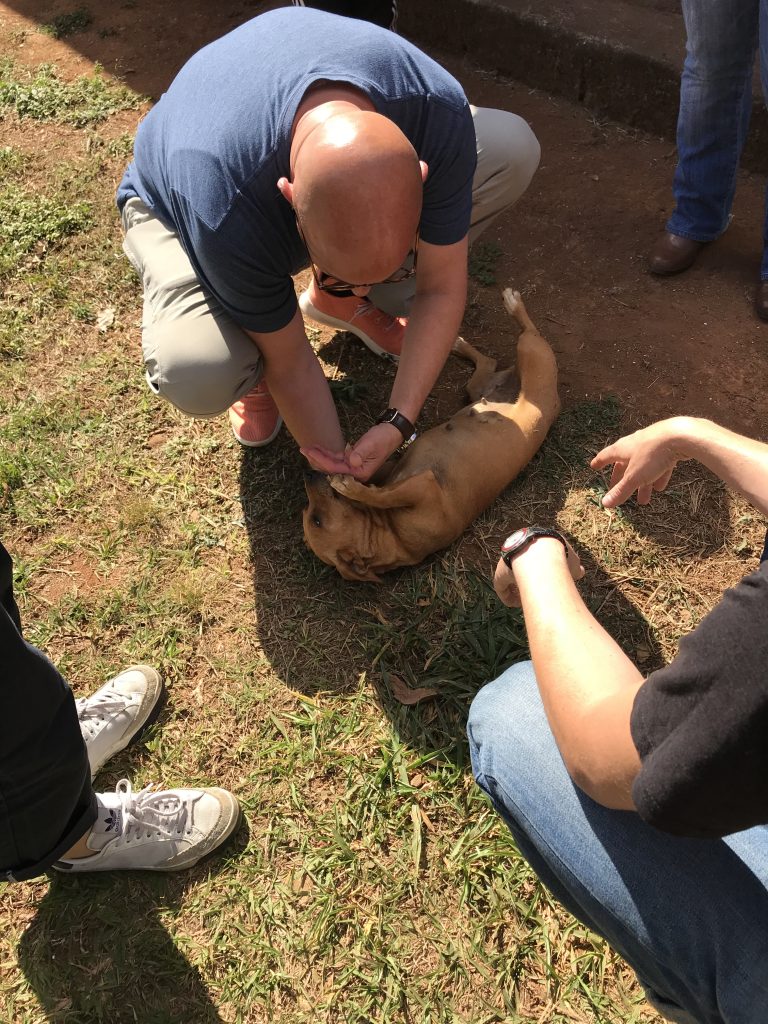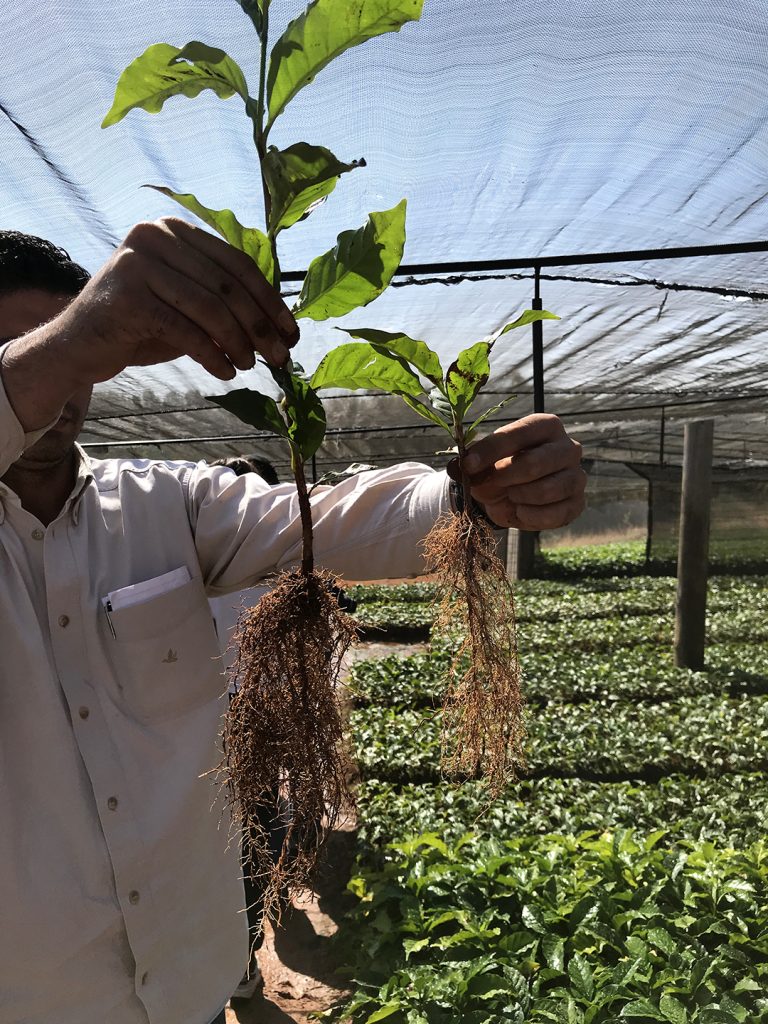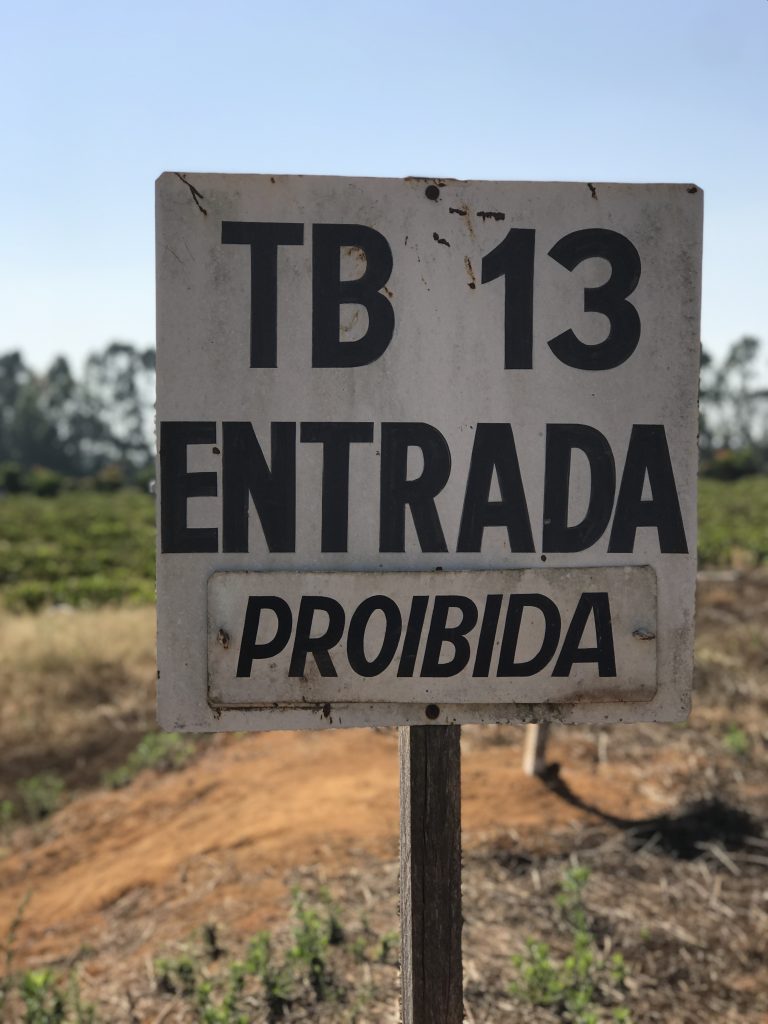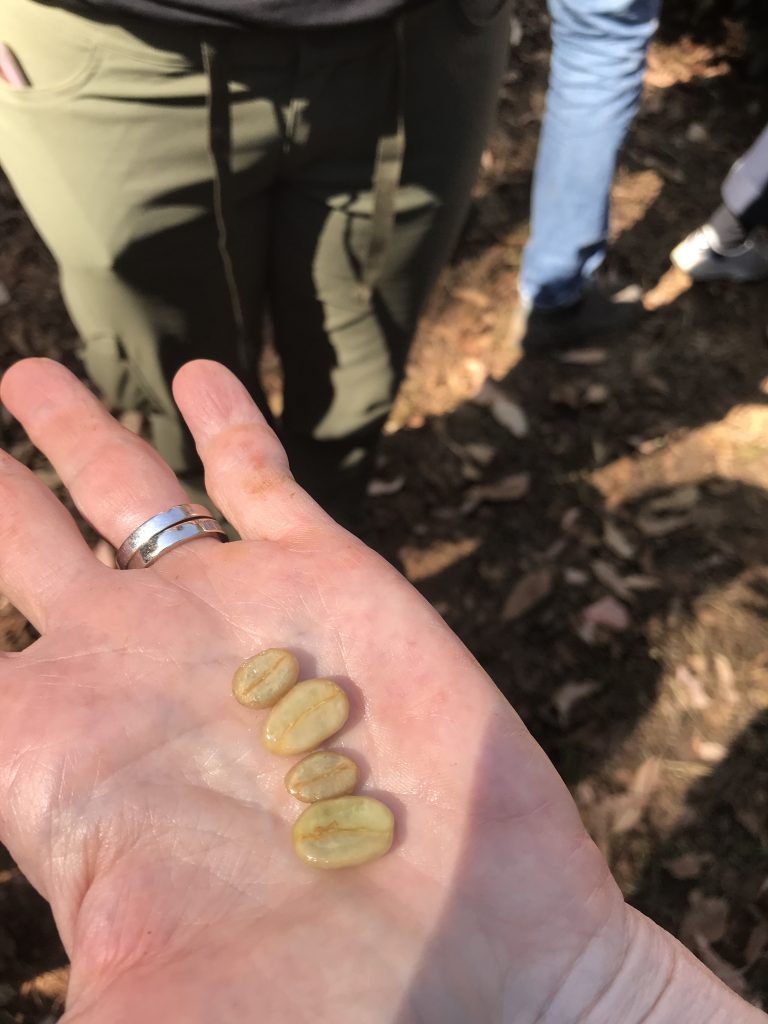Project Pacamara
Steve Mangigian
Managing Partner of the Zingerman’s Coffee Company
Zingerman’s has been working with Daterra Estate for about 15 years, since our days as a roaster in the corner of the Zingerman’s Mail Order warehouse back in 2003. Over the years, we’ve built a strong relationship that starts on the farm’s cupping table.
Every year, I trek down to visit our friends and coffee producers at Daterra Estate in Brazil, during the harvest season. The purpose of my visit is always two-fold: to taste (or, as we call it in the industry, “cup”) and select the varietals which make up our Espresso Blend #1 coffee (I’ll explain this process in a separate post – stay tuned!) to get an update on our experimental coffee plot.
It’s quite the journey to get to the farm. I always fly into São Paulo, Brazil’s most populous city, and from there, catch another flight inland to the municipality of Uberlândia in the state of Minas Gerais. From the airport in Uberlândia, it’s a three-hour car ride through the Cerrado — a vast, lush, savanna ecoregion—to the Daterra farm. From my front door to the gate of the farm, it’s about an 24-hour trip, but, WOW, is it worth it!
Daterra Estate is owned by the Pasqual family. Patriarch Louis Pasqual comes from a family that started in auto parts and tire service centers in Brazil and became the largest tire distributor in the country. As a result of that success, the Pasquals created a foundation from which they were able to give back to the country that gave them so much. They tried a few ventures—first with milk, then fruits and cattle—until they settled on coffee. At the time, there was an opportunity to bring specialty coffee to Brazil. The Pasquals allowed the farm to grow and flourish for 10 years before selling a single cherry! They truly wanted to develop something great, and invested in building up a quality farm before getting started commercially. Today, Brazil is the largest exporter of coffee in the world, and Daterra is the 3rd largest farm in the entire country.

3 years ago, this pup just appeared onto the farm and took to me and has always been a highlight of my trips when i come each year. Her name is Joaquim. I tried to figure out a way to bring her here to States!
Given the scope of Daterra’s operation, the fact that they received the Rainforest Alliance’s first EVER Level-A certification for their sustainability practices is profoundly impressive. What does that look like, exactly? Well, 60% of the farm is uncultivated, meaning the natural ecosystem of the area can thrive. Also, Daterra has embarked upon research into biological activity in soils used for coffee cultivation in partnership with the University of Sao Paolo. The program, called “Bioterra”, tracks a particular enzyme shown to be a good marker of biological activity and abundance of bacteria and fungi in soil. Another initiative of the Bioterra program is intercropping of coffee lines, to promote microbial diversity in the soil. Daterra is on the cutting edge of sustainability, agronomy, and business models, and we are beyond proud to be one of their highest-level partners.

Root structure of seedlings in the nursery. During the period of time it is growing, caretakers do some pruning. The root structure of the seedling actually modifies to the pruning! Old roots fall away and new ones grow to give energy to areas of seedlings that are above the earth.
Our exciting project with Daterra Estate is cultivating the Pacamara varietal (if you’re not familiar with it, I found a great write-up here). I was struck by the immense size of the Pacamara bean during my first ever origin trip to El Salvador many years ago, and I knew I had to do something special with this varietal. Pacamara has not traditionally been grown in Brazil. Our 3-acre plot is on a high, flat plane in the Cerrado region of Brazil near the city of Patrocínio. It is amongst the best coffee producing areas in the country.
We made a commitment to the farm with the plot project we’re a part of and we go down at least once a year to check on the status of the program. This is the longest term project that the farm has ever embarked upon. This project is several years in the making and, if our plot turns out to be sustainable, it could go on for 20 years!
We have an odd varietal planted in a foreign country, and it will take longer to develop. We have an experiment within an experiment happening as well: half of the project is shade grown, the other half is indirect sunlight. At processing level, we’d like to have some of this coffee as natural, some as a pulp natural, and some washed and fermented. Probably honey as well! We’re not expecting a lot of fruit this year, but next year should be a different story. Daterra’s agronomist really likes the healthy & robust development of our seeds, optimistic about fruit our trees will produce. Flowering of the trees in September will be our next milestone marker to know what to expect in terms of cherry production.
Pacamara coffee has been described as creamy in texture with intense aroma, with a wide range of flavors that fall under ‘sweet’ or ‘fruity’ descriptors. It’s a unique cup of coffee for sure.
Daterra Estate may be the world’s most technologically advanced coffee grower. They pioneered the Penta(tm) System that ensures quality from the plants in the nursery to the shipping of the coffee beans. Our Brazilian coffees benefit from all of Daterra’s innovations including a 7-step sorting process which uses 2 different laser sorters. The finished coffee is then stored in perfectly climate controlled wooden silos and shipped to us monthly throughout the year for consistent quality year round.
Daterra’s attention to detail also extends to their care for people and the land. Their name means “from the earth”. Daterra has been preserving and restoring native forests, wildlife and waterfalls resulting in 50% of their land being designated Natural Preservation Areas. They also lean the industry with their on-site school for workers’ children and are highly sought in the area as the employer of choice.
We are proud of our work with Daterra Estate and are excited to taste the fruits of their innovation and experimentation with you in the future – stay tuned!




